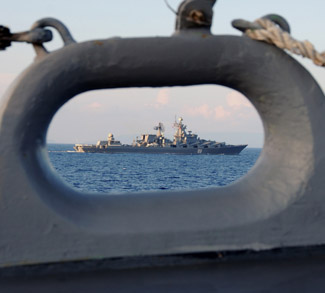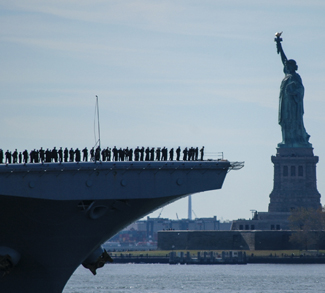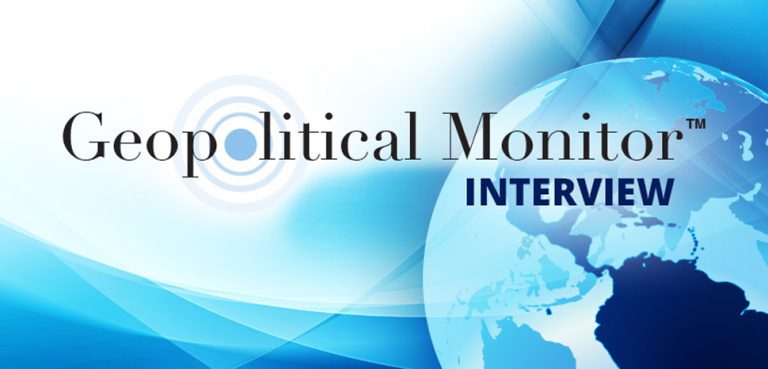The U.S., if not careful, could find itself fighting two wars in the Asia Pacific. From a global perspective, Russia has taken steps to reassert a sphere of influence in East Asia, potentially posing threats to US interests there as well as Europe. As a result, from a regional perspective, the U.S. would be hard pressed to contain both Chinese as well as Russian ambitions in the area.
The third year of the Ukraine conflict finds Russia continuing to establish spheres of influence, first with respect to the Syrian civil war, and now in the Asia Pacific. Historically, these campaigns mirror Russia’s initial territorial expansion, first in Europe, then in southwestern Asia, and finally in the Russian Far East. In more recent times, Russia has attempted to leverage increased ties with the Asia Pacific region on several occasions in order to garner a more favorable relationship with its Western interlocutors.
The difference between those previous occasions and Russia’s current Asia “pivot” is that Asia’s increased economic heft has decidedly shifted the center of global economic and corresponding geopolitical import in its favor. This, combined with the belated realization that Russia no longer seeks to unquestioningly emulate the West and now considers itself a unique civilization unto itself, will only serve to magnify Russia’s impact on the Asia Pacific security architecture.
Arguably, the Russian material presence is nowhere near Soviet naval levels in the region during the Cold War. This, however, should not lull the U.S. into a false sense of security by ascertaining that Russian pushback is limited only to the European and Middle Eastern theaters. Russia’s recent missile defense system emplacement on the Kuril Islands should not be taken lightly as it mirrors China’s recent missile deployment in the Paracels, while simultaneously hardening relations with Japan, a US ally which it still has not concluded a peace treaty with following World War II.
Lastly, the recent circumnavigation of this very same treaty ally by Russia may seem minor, but when taken in conjunction with the aforementioned moves, serves to put all players in the Asia Pacific on notice as to the permanent nature of Russia’s interests in the region. The rising geopolitical weight of the Asia Pacific region is also complemented by the fact that it is also home to most of the world’s great powers. Unfortunately for the U.S., none of these other powers are currently able and/or willing to help the U.S. check Russian power in the region.
Japan has no independent security policy, reliant as it is on the US-Japan alliance for its protection. Consequently, it cannot technically be considered a great power. Even if it were, however, Japan would have a dire choice to make involving its economic security versus its military security. Before the start of the Ukraine crisis, Japan had been making gradual headway in its talks with Russia to finally resolve the decades-old Kuril Islands dispute. With the onset of the crisis, however, Japan chose to close ranks with its fellow G7 members, including the U.S., in order to impose sanctions on Russia. Because of this, Japan has relatively more to lose than any other neighboring country by maintaining poor relations with Russia. Resource-poor and reliant on imports from energy-rich regions, Japan can at least count on friendly relations with India to not entirely jeopardize this energy flow from the Middle East and Africa. It is even willing to tepidly increase its military presence in the South China Sea to ensure this flow remains uninterrupted despite China’s machinations.
Russia, however, is another matter. There is simply no other country as close and with as much abundance in the energy supplies which Japan craves. Compounding its energy dependency on the Russian Far East, Japan has also shown interest in Arctic oil and gas reserves. It knows, however, that the key to efficiently exploiting these resources leads it on a path necessitating good Russian relations.
India is currently being wooed by the U.S. in its bid to counter China’s rise. Because of past Sino-Indian animosity, it is willing to play this role, but only to a limited extent and definitely not as a formal US treaty ally. As with Japan, however, Russia is an entirely different matter. Compared to Sino-Indian relations, Russo-Indian relations have always been relatively good, if for nothing else than the two giants never actually physically abut one another. This also finds resonance with good Indian relations with the former Soviet Union during the Cold War, despite the former’s official nonaligned status. In the end, it would be highly unrealistic for the U.S. to expect India to help it balance Russia in the Pacific given the two countries’ warm relations towards one another and specifically given India’s well-known multi-vector foreign policy strategy.
If the expectations are low that India will help the U.S. balance Russia, then those very same expectations with respect to China are positively at the nadir. Firstly, the U.S. has its own host of problems with China expanding its own sphere of influence in both the East and South China Seas. China is not about to do anything which would potentially enhance the U.S. military presence in these geographic areas.
Secondly, the Ukraine crisis has had the effect of warming and strengthening Sino-Russian relations. While Russia and China are not technically allies and only share a “strategic partnership,” China would not do anything to jeopardize these relations. This is only accentuated by the fact that China finds itself in a position similar to Japan in that it is in its own best interests to foster good relations with its large, resource-abundant neighbor, given its own resource poverty.
Because of all of these factors, it will be difficult for the U.S. to balance against Russia in Asia either on its own, or in conjunction with specific partners.
The opinions, beliefs, and viewpoints expressed by the authors are theirs alone and don’t reflect any official position of Geopoliticalmonitor.com.




